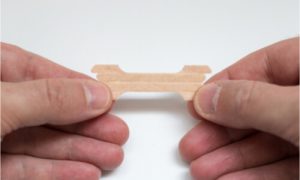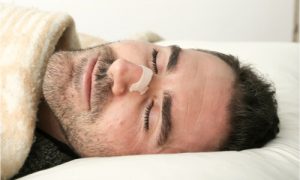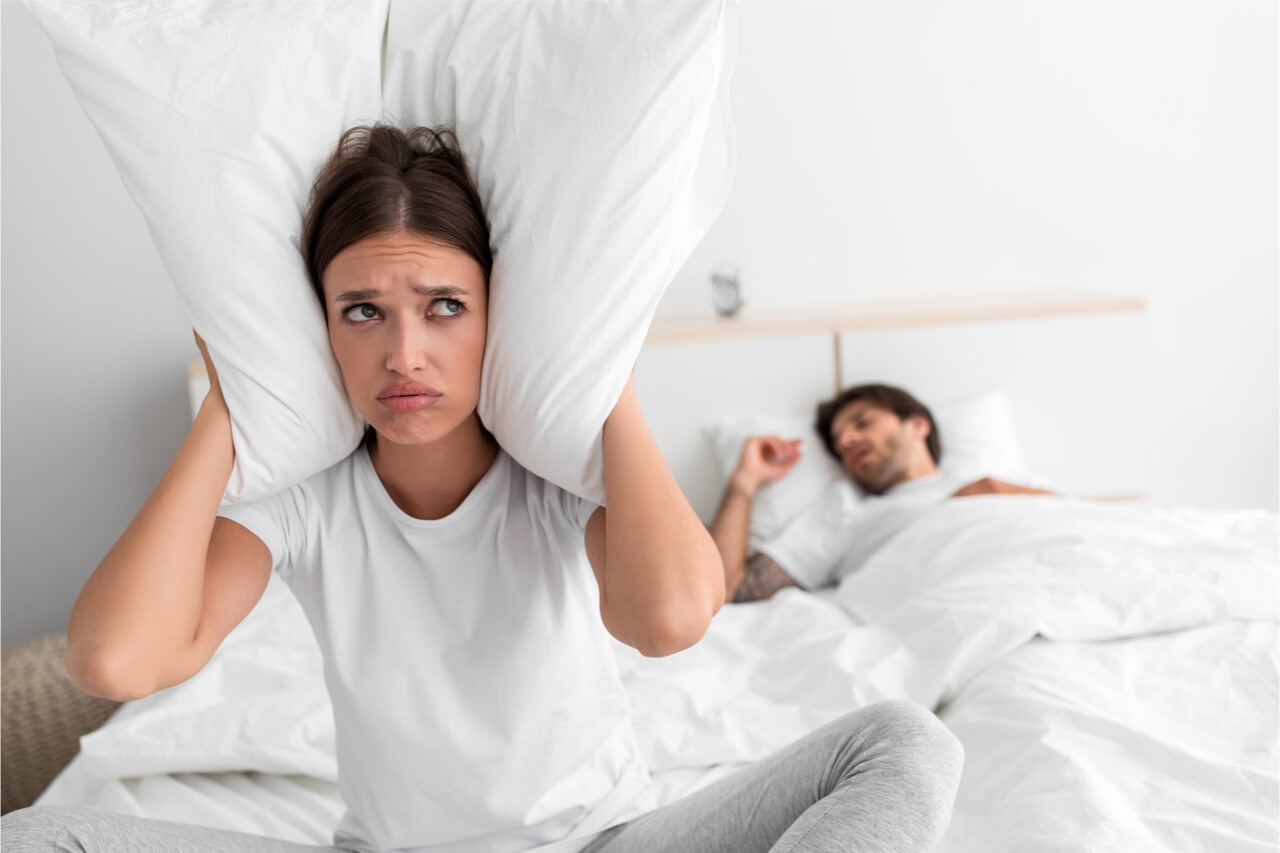Do you snore? If so, nasal strips may be the answer to your problem! Snoring can cause many problems for both you and your loved ones. It can lead to fatigue, irritability, and even health problems. Luckily, nasal strips can help you stop snoring tonight. This blog post will discuss the benefits of nasal strips for snoring and how they can help you get a good night’s sleep!
- Why do we snore?
- How does snoring affect our sleep?
- What is sleep apnea?
- Risk factors of snoring
- What are snoring strips?
- Do snoring strips work?
Why do we snore?
Snoring is a common problem that affects millions of people. While it can be embarrassing and frustrating, snoring is a sign that something is wrong. Snoring occurs when airflow through the nasal passages is blocked, which can cause the tissues in the nasal cavity to vibrate. This vibration creates the sound of snoring.
There are many causes of snoring, including nasal congestion, allergies, obesity, and sleep apnea. Snoring can also be caused by the shape of the nasal passages or the relaxation of the throat muscles.
When an obstruction or narrowing occurs, air does not get into the throat or nose, and the airflow becomes turbulent. The result is that the tissues in the back of the throat, including the soft palate and uvula, can vibrate, making the snoring sound.
How does snoring affect our sleep?
In the case of an occasional or “light” snorer, the vibrations can disrupt others to fall asleep and be a bit of an annoyance or nuisance. But if the snorer’s breathing is not affected, their sleep can remain blissfully unaffected, too.
But that’s not the case for everybody. “Habitual” snorers need to make a concerted effort to maintain adequate breathing while sleeping. That effort causes transient arousal from sleep – meaning they are temporarily awakened throughout the noisy night. When we are sleep-deprived, we wake up feeling tired and sluggish, and we experience general sleepiness during the day. That prolonged fatigue can lead to all types of sleeping disorders.
In some cases, the airways can be so highly obstructed that the person stops breathing momentarily while asleep. This can happen many times a night in some people. The condition is called sleep apnea. Sleep apnea causes reduced oxygen flow to the vital organs, increasing the risk of hypertension, cardiovascular disease, and other health problems.
What is sleep apnea?

Sleep apnea is a serious sleep disorder that affects millions of people. It occurs when a person’s airway becomes blocked during sleep, which prevents them from getting the oxygen they need. This can lead to several health problems, including high blood pressure, heart disease, and stroke.
People with sleep apnea often snore loudly and frequently stop breathing during sleep. This can cause them to wake up tired and groggy. Left untreated, sleep apnea can be dangerous and even life-threatening.
If you think you might have sleep apnea, it is essential to see a doctor for diagnosis and treatment. They would conduct different tests, like a sleep study. Many therapies are available for sleep apnea, including nasal strips, CPAP machines, and surgery.
Risk factors of snoring
Several risk factors can increase the likelihood of snoring. Some of the most common risk factors include:
- nasal congestion
- allergies
- obesity
- age
- male gender
- smoking
Snoring is a problem that affects men and women of all ages. Snoring is something that may happen to anyone, including youngsters. However, as we age and the muscles and tissues in the back of the throat loosen, it becomes more prevalent.
Because not everyone realizes they snore, the actual percentage of people who snore is unknown. However, according to a study up to 45% of men and 25% of women snore regularly.
Snoring might happen once in a while or regularly. When you snore, the noise and interruption might make it difficult for your companion to sleep. It can also have a negative impact on the quality of your sleep.
Snoring can be caused by several reasons, including a deviated septum or swollen tonsils. Nasal polyps and other anatomical problems that might impede airflow could also cause snoring.
Snoring can also be a sign of sleep apnea, which causes short pauses in breathing while sleeping. Snoring can be caused by a cold or allergies that induce a blockage in the nose.
It’s critical to address snoring if you want to enjoy a good night’s sleep. Some people may be afraid to seek therapy for snoring because they believe it would be intrusive or uncomfortable or unsure of their alternatives. One possible treatment for snoring, which might be effective, is snoring strips.
What are snoring strips?
Snoring nasal strips are small adhesive devices placed over the nasal passages. They work by widening the nasal passages and improving airflow. Snore strips are an external nasal dilator that works from the outside to pull the nostrils open, allowing more space for air to flow into. This will enable you to breathe more easily and reduce the risk of snoring.

The snoring strips, as nasal dilators, are small flexible bands of material worn on the nose’s outside surface. The underside of the snore strips has an adhesive material that allows it to stick on the skin. One strip is placed in the center of the nose, so it sits above the flare of each nostril. Snore strips pull the sides of the nose to widen and open nasal passages. Because of nasal dilation, the more extensive nasal passages improve airflow through the nose, and air turbulence decreases, resulting in reduced snoring.
Snoring strips are a safe and effective way to reduce or eliminate snoring. One of the most popular is Breathe Right Nasal Strips. They are easy to use and can be worn while sleeping or during activities such as running or swimming. Snoring strips are also latex-free, making them a good choice for allergies.
Several different types of snoring strips are available, including nasal strips, nasal filters, and nasal cones. These oral appliance products work similarly by widening the nasal passages and improving airflow.
If you are looking for a non-invasive way to reduce snoring and improve sleep, nasal strips might be the answer for you. Snoring strips are easy to use and can be purchased at most drug stores or online.
Nasal Strips for Snoring: Do they work?
There is some debate as to whether or not nasal strips work. A study found that the suitable nasal strips did not work better than a placebo nasal strip in reducing snoring. However, other studies have shown that nasal strips reduce snoring. Another study showed that nasal strips effectively reduced snoring by up to 45 percent.
Snoring strips’ efficacy varies depending on the reason and severity of the blockage. While the strips can assist raise the side of the nose, they aren’t always practical. It’s possible, for example, that they’ll fall off in the middle of the night.
They also don’t address underlying sleep problems like sleep apnea, which includes snoring as a symptom. They are, however, an easy and unobtrusive approach to minimize snoring when they work.

Snoring strips have the advantage of being drug-free. They may also be obtained without a prescription, which is advantageous. Snore strips offer few to no adverse effects in most cases. The only probable negative impact is skin irritation, which is usually minor. When the strip is removed, the adhesive on the underside of the strip can cause skin irritation. However, removing the strip slowly may reduce the possibility of irritation.
The effectiveness of snoring strips appears to be variable in studies. Is it worthwhile to give them a shot? Maybe. Snoring strips will not cure sleep issues, but they may help to reduce snoring in certain people. It could be worth a go because they seldom produce negative effects and are pretty inexpensive.
The verdict is still out on whether or not nasal strips work, but they are a safe and easy-to-use option, so they might be worth a try if you are struggling with snoring.
If you have persistent snoring, you should seek additional medical evaluation. For more information, speak with your doctor, who may refer you to a board-certified sleep medicine physician for testing and definitive treatment.
References:
https://www.sleepassociation.org/sleep-disorders/snoring/snoring-strips/
https://www.healthline.com/health-news/does-it-work-snoring-devices
https://pubmed.ncbi.nlm.nih.gov/9299650/
https://www.verywellhealth.com/how-do-breathe-right-strips-improve-snoring-3015186
